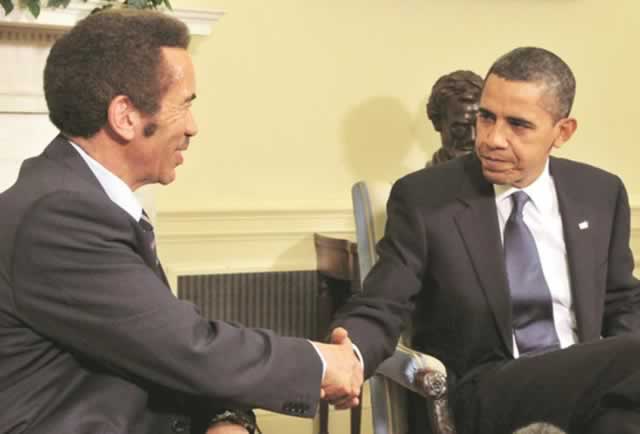A slave to technology


The phone, including the iPad pictured above, encourages gossip but it can never feed anyone, let alone make them happy
Sekai Nzenza On Wednesday
This technology was supposed to set us free of the poles and wires of old-time phones. And we don’t need Samuriwo the bus conductor anymore as a messenger
THERE was a time when all news of the outside world came to us in the village on the bus. Samuriwo, the bus conductor, was our newspaper, radio, phone and mirror to the city and everything beyond.
In those days, conductors like Samuriwo were important people with elevated status. They knew the secrets of the families along their bus route.
This was because Samuriwo was entrusted by the Rhodesia Postal Services to deliver our bag of letters from Enkeldoorn (now Chivhu) to Muzorori & Sons store at Shumba, 10 kilometres from our house.
He was more than just a postman though. One time, the driver stopped at the house by the foothills of Hwedza Mountains. Samuriwo jumped off the bus to deliver groceries and a letter for the woman sent by her husband who worked in Salisbury.
We sat in the bus and watched him disappear in her house. When Samuriwo finally came back, he apologised for the delay. He had to read the letter to the woman and then write back to her husband because she was illiterate.
I recounted this story to my niece Shamiso, who barely looked up from my iPad.
“With all these smart camera phones and iPads, you wouldn’t dare spend that much time with another man’s wife the way Samuriwo did.
“Someone would take a picture and send it to the husband within seconds,” said my brother Sydney, laughing.
We were sitting under the mango tree in the village, waiting for people to arrive for a meeting of the Simukai Project.
Across on the bench, opposite us, Sydney was chewing sugar cane while Jemba and Musekiwa peeled and ate oranges.
Musekiwa is the son of the late Nyakudirwa, the hunter whose family lives down the narrow footpath from us, closer to the river.
Piri was sitting on a mat next to me, playing with Prince, Shamiso’s baby.
She was not drinking beer for a change, because we have a rule that no alcohol can be consumed before meetings. Piri understands that.
She knows she gets a little over-excited before the project meeting and alcohol does not help.
As usual, Shamiso was so busy texting that she was almost oblivious to what was going on around her.
She was in another world. This craving for constant communication is spreading across the world like some kind of disease. Take a train in a Western country, and you hardly see anyone talking to the other.
They are far too engrossed in their smartphones and iPads for that. It’s dividing families too.
In a restaurant, you will see father, mother and two children all poring over their gadgets, without exchanging a word.
It’s a disease that has not reached us in the village yet but with the spread of networks in Zimbabwe, it’s coming.
Only the cost of airtime will slow its advance. How shall we enjoy the advantages while rejecting the downsides?
I now have an iPad, courtesy of my cousin Reuben, the one who lives in Australia. It was his hand-me-down.
Since he likes to have the latest model every year, he gives away the old ones.
Last time he gave my cousin Piri a very nice phone which she lost at Mbare market soon afterwards.
This time, I got the iPad which I use for taking pictures, videos and sending information via email, text messaging or WhatsApp.
Now we can film all the meetings and take pictures of people doing project work, performing traditional ceremonies, at church or going about their daily business.
Jemba and Musekiwa were not impressed. “We have become slaves to technology,” Jemba scoffed. His phone had died and he had not bothered to get a new one. Could a phone really be worth the price of a goat that he would have to hand over?
“That is the bad news about all these gadgets,” said Jemba, pointing to my iPad. “That machine is dangerous. It’s full of gossip.”
The phone encouraged gossip but it would never feed anyone, let alone make them happy, said Musekiwa. He had a phone briefly, but he never had any money in it. One day he got caught in the rain and the phone ‘drank’ the water and died. He felt free without his phone.
“I can be anywhere around the villages and my wife will never know where I am,” he said. “I can stay up all night drinking and turn up in the morning the way it used to be. Before mobile phones, nobody worried about where people were. But now, my wife moves with the phone around her neck like a necklace.”
Musekiwa wanted the dangers of mobile phones to be added to the agenda for the development meeting.
“Mobile phones are too expensive for nothing. The women are paying too much for gossip, topping up their airtime.
“There should be one mobile phone at the school, the clinic and another with Sabhuku, the kraal head, that is all. We can all contribute a dollar a month to the management of just one phone,” Musekiwa declared.
In twos and threes, the people started arriving for the project meeting. Top of the agenda for the meeting was how we would pay for seeds and fertilisers for the coming rainy season.
But just before the meeting, Shamiso started showing people old village photographs that I had downloaded on to the iPad. There were photos of a big family reunion with all the neighbours back in 2006 before the hunger of 2008. People gathered to look at the pictures,
laughing and pointing to the screen and leaving dirty fingerprints on it. There were so many exclamations of delight and surprise: “Ah! Uhhh! Hiiii!” “Look at how fat I was. Look at how young I looked compared to now.
“Ah, that is Mbuya VaShuvai; she was so healthy then and dancing. Iii, and look at that maid who ran away with the Apostolic preacher. Remember her, the one who was from Masvingo and she had the big bottom? Ah, and look at Jemba, when he came over that Christmas. He still had a job in Hwange. He is wearing a suit.”
Everyone looked at Jemba’s photo and cracked up laughing at him.
“Hey, Jemba, what happened? In 2006 you were fit and you had all your teeth. In 2014, you are a little old man with no wife and not a lot of teeth?” Piri asked.
Jemba laughed too, the kind of laugh when you make light of your own misfortune. Jemba licked the newspaper and rolled his cigarette.
“Ah, hupenyu,” he said, chuckling away, baring his gapped mouth.
“It’s called age,” Jemba said. “Poverty will make you an old man before your time. That is why I do not like photographs.”
Other people nodded. Life changes over time. When we look back to the past we looked so happy, like we had no problems at all at that time.
Shamiso kept on flipping the photos and the reactions varied from sad memories, laughter or just silence.
Then Shamiso came across the photo of Nyakudirwa, Musekiwa’s father.
Nyakudirwa died around 2008 and Musekiwa inherited his role as the hunter around here.
I pulled Musekiwa over and pointed to Nyakudirwa’s photo from 2006, standing tall, regal and barefoot, holding his walking stick and wearing a red cap like a Nigerian chief.
Musekiwa took one look at the photo and turned his head away very quickly. He pushed the iPad away and said: “Do not show me that
picture of my father VaNyakudirwa. He died. That is past.”
“But, with modern technology you can now see him on this photo and remember him,” Shamiso said, following him.
But Musekiwa briskly walked off, his steps leaving big footprints in the sandy soil.
He looked away, his eyes downcast in sadness.
“Iwe, leave Musekiwa alone. If he does not want to see a photo of his father, he does not have to,” Piri shouted at Shamiso. Then Shamiso found a photo of Musekiwa, taken only a few months ago, at the beginning of the weeding season.
His expression softened as he looked at himself. He laughed, running his big rough hands over his bald patch.
“Ah, it’s me. Hey, is this how bald I have become. Haa, I look like my old man Nyakudirwa,” he said laughing. Then he turned to me.
“Chihera, next time you come back to the village, bring me a mirror. I have not seen myself for a long time,” he said. Everyone laughed again and Piri pulled Musekiwa’s shirt.
“No wonder village people are left behind by development. You do not have a mirror in your whole house?”
Addressing the group, Piri raised her voice. “Why talk about technology and mobile phones when these guys refuse to have a mirror, shave or clean their teeth everyday? Put that on the agenda!”
“Do not talk like you have always lived in the city,” said Musekiwa with a flash of irritation. “Where do I get a mirror when I do not have money to go to the grinding mill?”
Our agenda was already packed with challenges for the coming season. Yet still we added another item: how to use mobile phone technology appropriately in the village. This technology was supposed to set us free of the poles and wires of old-time phones.
And we don’t need Samuriwo the bus conductor anymore as a messenger.
Technology may save lives in times of emergency but we risk spending too much time on the trivial and the banal, simply because we can.
Dr Sekai Nzenza is the CEO of Rio Zim Foundation. She writes in her personal capacity.









Comments